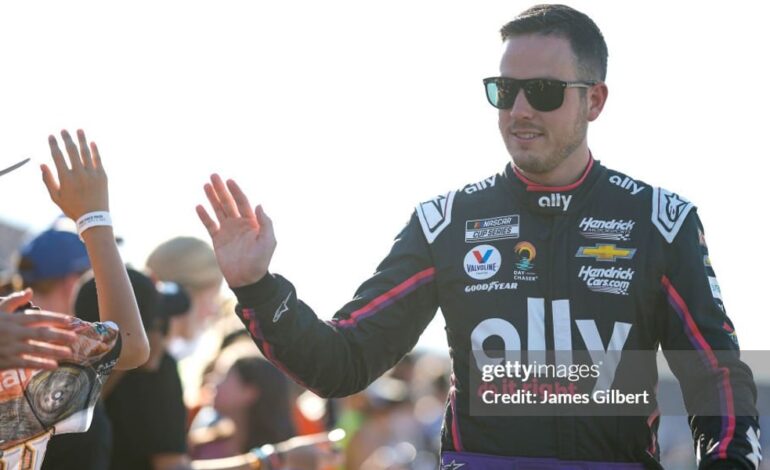Horse racing is one of the most popular sports and forms of entertainment in general in the UK. Horse racing has become renowned not just for its wide appeal to fans of the sport but also for its impressive crossover into the world of gambling, being one of the most popular sports in the UK to bet on.
In this article, we aim to provide you with everything you need to know about horse racing betting so that you can partake in the popular pastime going forward. We believe it is very important to be knowledgeable about not just the sport you intend to bet on but also the available markets and how they work.
Horse Racing Betting Markets
Embed from Getty ImagesIn this section, we are going to go over some of the most popular horse racing betting markets available. It’s important to note that the odds and payouts will vary for each race and track. There are also not only more bet types than the ones we will mention but also that these bets come in multiple variations. Before placing any bets, it is important to fully understand the type of bet you are placing as well as the track race and horses.
Win-Only
The win-only bet is the most straightforward bet type available. For this bet, you must simply predict which horse you think will win the race. For your bet to be successful, the horse you back must finish first in the corresponding selected race.
Each Way
There are many major horse racing events that feature lots of runners, and as a result, it can be very difficult to predict one horse to win outright. This is where each-way bets come in. Each way betting covers multiple outcomes of a race, backing a horse to win or to finish in the top predetermined number of runners taking part.
The first part of your bet is essentially a win outright bet; if your horse is able to win the race, you will be paid out the full odds of your bet.
The second part of the bet, known as the ‘place’ section, returns a fraction of the odds depending on how many places they can finish. Place bets typically cover places from second to fifth, depending on how many horses are in the race. For example, in a small race, your place bet may have each-way ½ odds for positions first and second. This means that if your horse finishes first, you will receive both payouts, but if your horse finishes second, you will receive ½ of the full odds. If there are more horses, then you may receive each way ⅕ odds for positions first through fifth.
Exacta
This is a very tricky betting market and involves predicting which horses will finish first and second in the exact order.
Trifecta
This bet type involves placing a bet on the horses you think will finish from first to third.
Quinella
In this betting market, you predict the horses that will finish first and second but in any order.
Daily Double
This betting market is a more difficult version of winning outright. It involves predicting the winner of a race twice in a row.
How Do the Odds Work
Embed from Getty ImagesThe bookmakers decide the odds of each horse based on how likely they think they are to win the race. The odds represent both how much a bettor can expect to be returned from a successful bet and how likely a bet is to be successful. An example of odds would be if a horse is 4/1 to win and you place a £1 stake; you can expect to return £4 plus your original stake if the bet is successful.
To decide the odds of a horse, bookmakers take into consideration past performances, the condition of the track, the horse’s performance on said track, and the skill and condition of the jockey and horse.
It’s important to understand how the odds reflect a horse’s chance of winning so that you can place smarter bets. If a horse has low odds, that means the bookies think they have a good chance of winning the race. This makes that horse a safe bet but one with low return potential. A horse with high odds is unlikely to win, but if they do, it will provide a higher value return.
How to Calculate Odds
When working with fractional odds, you simply multiply your stake by the fraction and add your additional stake. We recommend using betting tools to help with this process, though, as it can lead to a more efficient and less stressful bet-placing process. Betting calculators, in particular, can be very useful for calculating your expected losses and profits. Betting calculators can also be used to engage in matched betting successfully, a betting strategy that uses mathematical systems and free bets to limit losses.
Researching the Races
Embed from Getty ImagesWe would also highly recommend learning more about the sport and each horse at a given race. This will not only help you make more informed bets but can also allow you to get more invested in the sport as a whole and can make for a fun pastime.
Summary
In conclusion, betting on horse racing can be a very enjoyable endeavor, but it’s important to approach it with the right knowledge and mindset. We’ve explored the key aspects of horse racing betting in this article, from understanding the types of bets to how to calculate odds. Remember always to gamble responsibly when participating in horse racing betting.
Come check out Belly Up Sports on Twitter/X for more sports and entertainment news and content. Featured image credit to Greg Pease/Getty Images.






